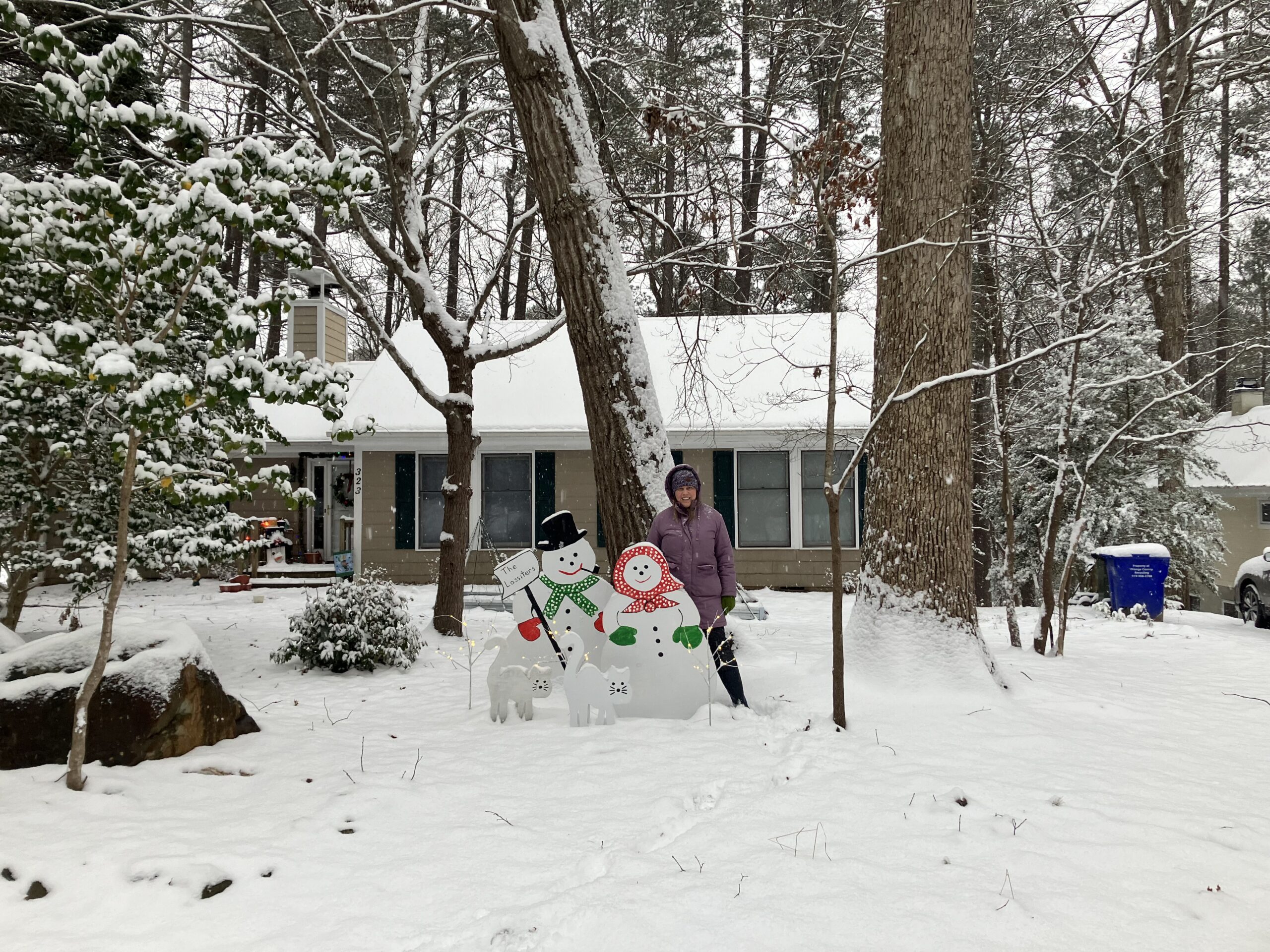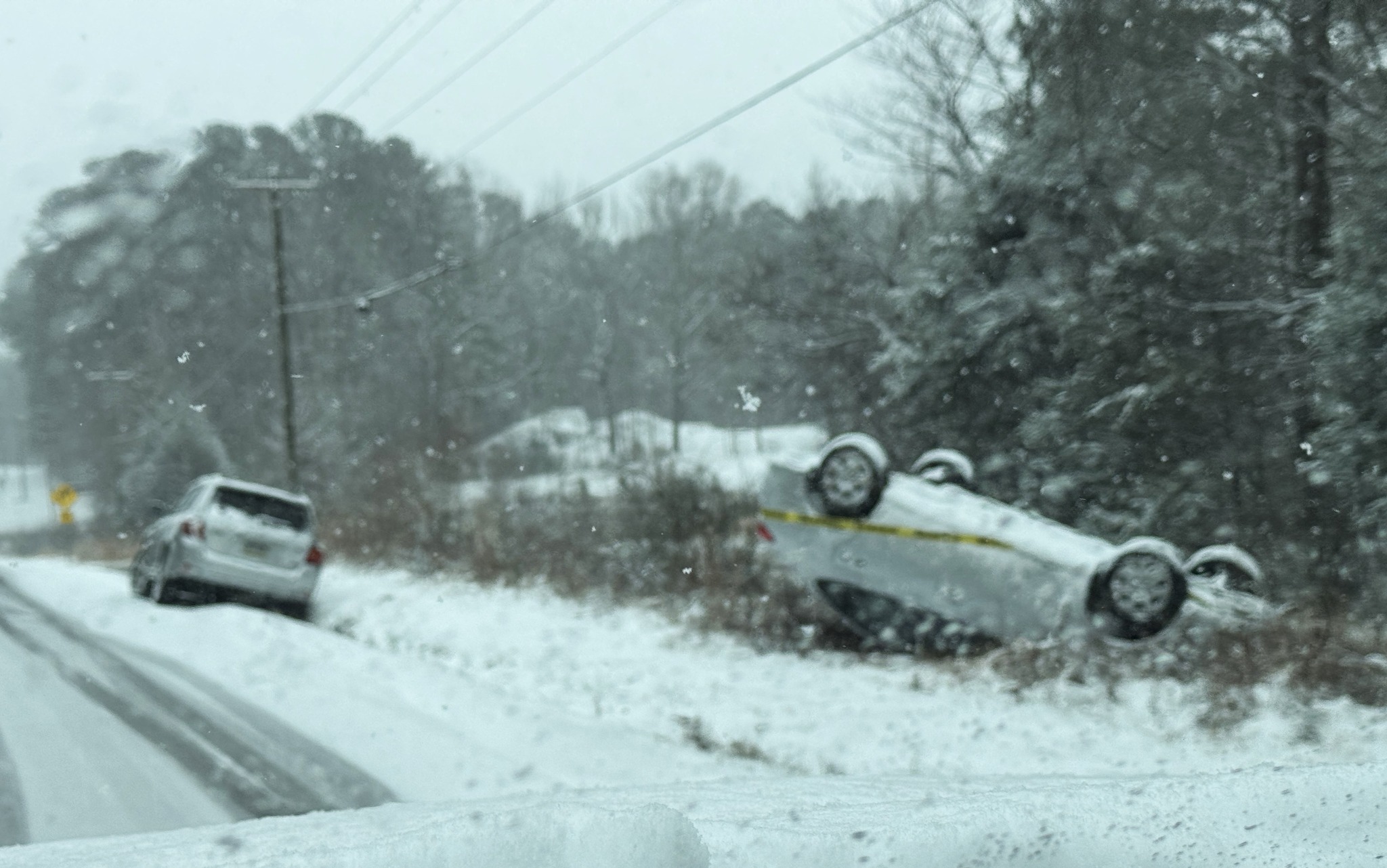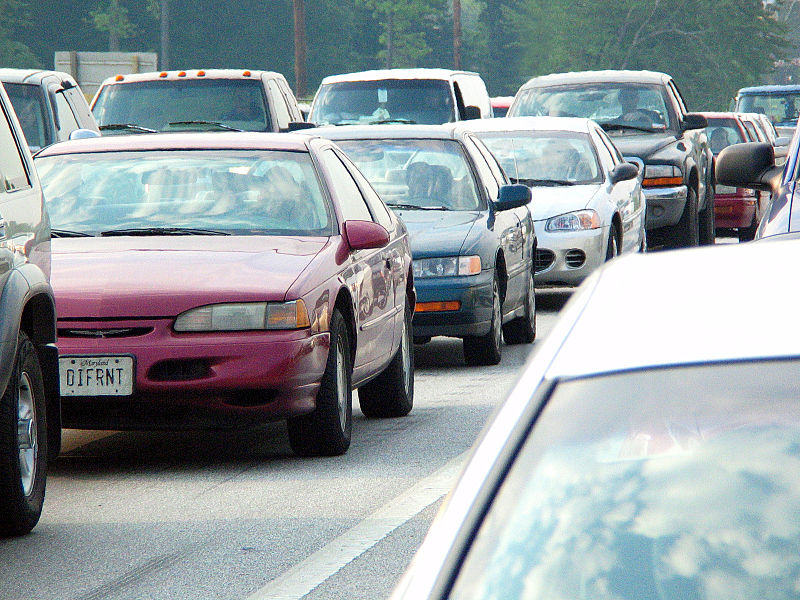NORTH CAROLINA- As the temperatures drop and winter weather moves across our state, AAA of the Carolinas has some safety tips to help keep you safe if you have to travel over the next several days.
Angela Vogel Daley of AAA says to avoid unnecessary travel if possible during dangerous weather events.
“If you anticipate snowy or icy conditions in your area, our best recommendation is to stay off the road,” Daley says. “Delay your travels and travel at a time when it is going to be much safer.”
Daley recommends keeping a greater distance between your car and the car in front of you. On dry pavement at 20 mph, it takes about 20 feet to stop, whereas on ice-covered roads at 20 mph, it takes 145 feet to stop.
If you have to put on the brakes, it is a good idea to do so gradually with steady pressure on the brakes. If you begin to skid, steer in the direction you want to go. If you have anti-lock brakes, keep the brake firmly engaged; if you don’t have anti-lock brakes, gently depress the brake pedal.
Don’t slam on your brakes because it can cause you to lose control. If the brakes lock, release the brakes and gently brake again while keeping your heel on the floor.
Avoid using cruise control in rainy, slick or snowy conditions.
“You may need to take your foot off the pedal quickly. This cannot be easily accomplished when your cruise control is engaged. You may cause the car to skid if you are in cruise control.”
To prepare for frigid conditions, Daley says it is also important to check your car battery.
“When temperatures get below freezing, your battery loses about 40 percent of its charge. If your battery is weak to begin with, your car may not start. We will definitely see that when temperatures go below freezing.”
During winter months, the risk of carbon monoxide poisoning increases as people warm up their cars in closed garages. In some counties, Daley explains, it is illegal to warm up a car parked on public streets when the driver is not in the car.
“You should never be warming up your car with a closed garage door. Pull your car outside to warm it up.”
Keeping an emergency kit in your car can also help you be prepared if you become stranded while traveling. Daley says to make sure it includes a car charger, blankets, a flashlight with extra batteries, a first aid kit, drinking water, a small shovel, a sack of sand or cat litter for traction, a windshield scraper, battery booster cables, emergency reflectors and non-perishable snacks.
Related Stories
‹
![]()
Seatbelt Usage Down In North CarolinaSeatbelt usage in North Carolina has statistically been among the best in the nation for a while, but AAA Carolinas Communications Director, Angela Vogel Daley, says the buckle-up rate dipped in 2012.

Photo Gallery: Winter Storm Drops Several Inches of Snow on Orange, Durham CountiesWednesday's winter storm left behind several inches of snow in Orange and Durham Counties. Check out our local photo gallery!

Snow, Ice Create 'Treacherous' Roads in Orange County; Sheriff Urges Drivers to Stay HomeAn increase in snowfall and cold temperatures on Wednesday led to rapidly deteriorated road conditions in Orange County and the surrounding area — causing several crashes and traffic slowdowns.

97.9 The Hill's Staff Picks: Snow Day ActivitiesWelcome to the eleventh edition of 97.9 The Hill’s Staff Picks! For our first round of Staff Picks in 2021, we’re diving into our coldest and coziest snow stories. In an attempt to manifest a snow day in North Carolina before springtime, we asked our staff to share their favorite snow day activities and memories! […]
![]()
Busy Roads Expected for Holiday Travels, State Groups Promote SafetyThis week is one of the busiest travel periods of each year, and many North Carolinians are hitting the road to see family and friends. A record-breaking number of North Carolinians are projected to be traveling over the next two weeks. AAA of the Carolinas predicts most travelers will be driving to their destinations, with […]

North Carolina Groups Promote Safety on the Road Ahead of Busy ThanksgivingWith AAA Carolinas estimating a record 1.34 million North Carolinians hitting the road for the Thanksgiving holiday, many groups around the state are encouraging drivers to use safe practices. During last year’s Thanksgiving holiday season, there were 2,957 traffic accidents in North Carolina resulting in 1,155 injuries and 20 deaths, according to the Department of […]
![]()
AAA: Holiday Travel Could Hit Record in North CarolinaNearly 3 million North Carolinians are expected to hit the road for the holidays, which AAA Carolinas said would be a record-breaking number. In addition to the roadways, nearly 300,000 North Carolinians will be traveling via airplane, train or bus. The organization said those overall figures would represent an increase of more than four percent […]
![]()
Memorial Day Expected to Reach Record High Travel NumbersAccording to AAA Carolinas, an estimated 1,260,000 North Carolinians will be traveling this Memorial Day, the highest volume of Memorial Day travelers in the state since 2005. These numbers come despite there being higher than average gas prices, which AAA Carolinas spokesperson Tiffany Wright said won’t be slowing down travelers in the state this year. […]
![]()
AAA Carolinas Projects Record Number of Traveling Tar Heels for ThanksgivingPack your patience if you are heading out for holiday travel on Wednesday. AAA Carolinas estimates more than 1.4 million North Carolinians will be traveling more than 50 miles from home over the Thanksgiving holiday period and nearly 90 percent of them will travel by vehicle. “That’s the largest number that we’ve seen since we’ve […]
![]()
NC Rural Roads Among Deadliest in NationNorth Carolina’s rural roads are some of the most unsafe in the nation, according to a recent study. TRIP, a national transportation research group, revealed in its rural road study earlier this week that North Carolina ranks eighth in the nation in rural road fatalities. AAA spokesperson Tiffany Wright spoke on the matter. “North Carolinians […]
›





